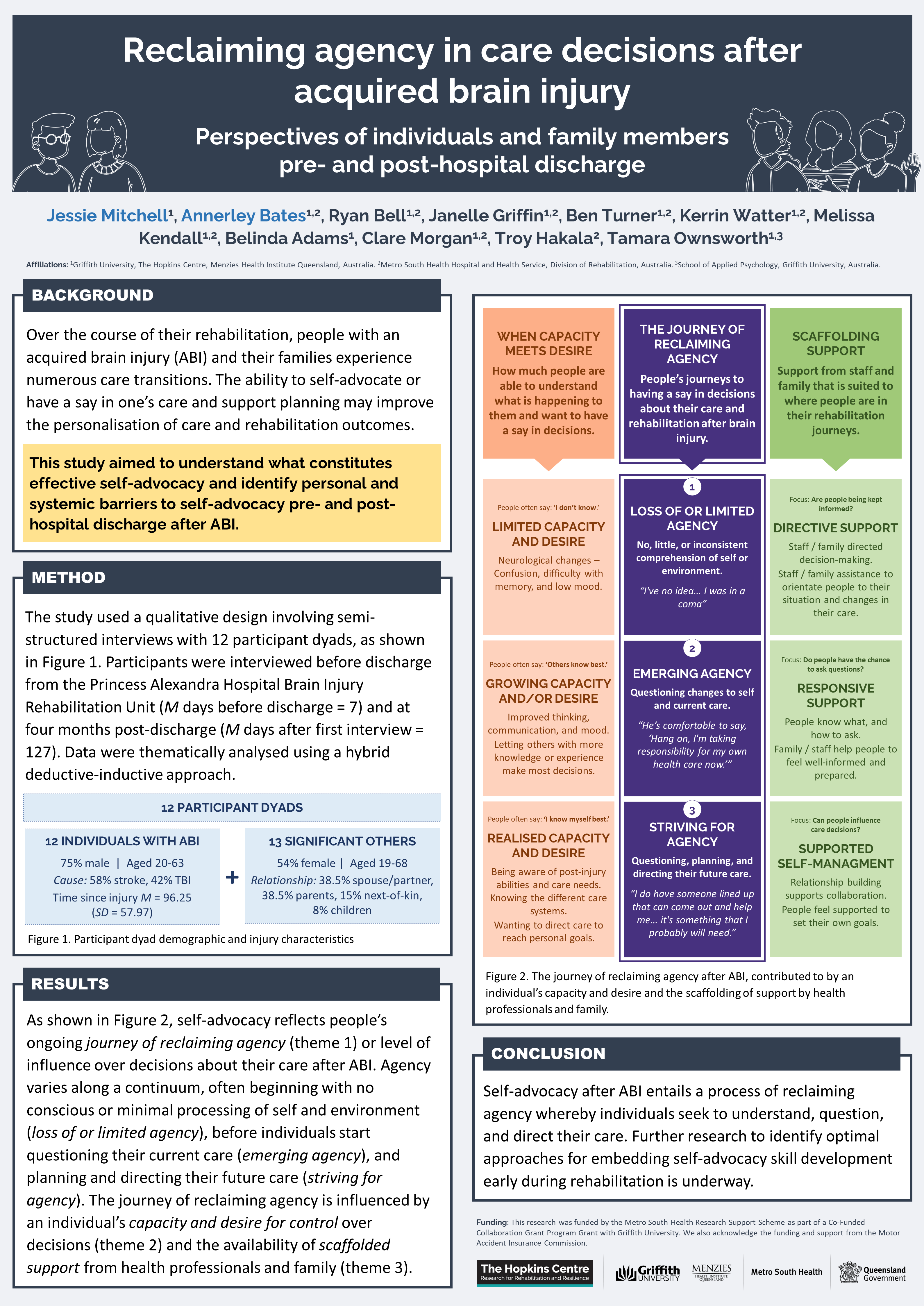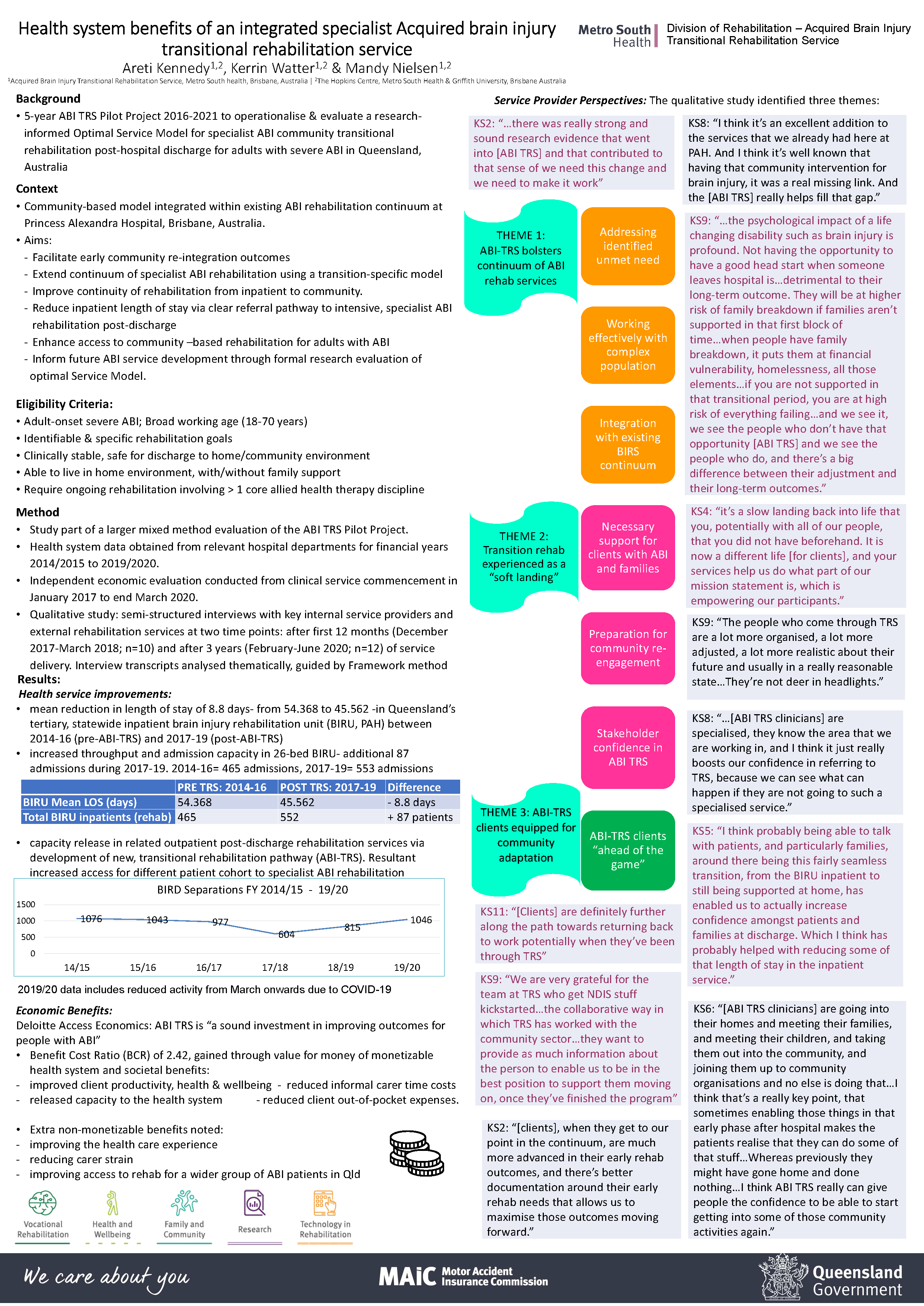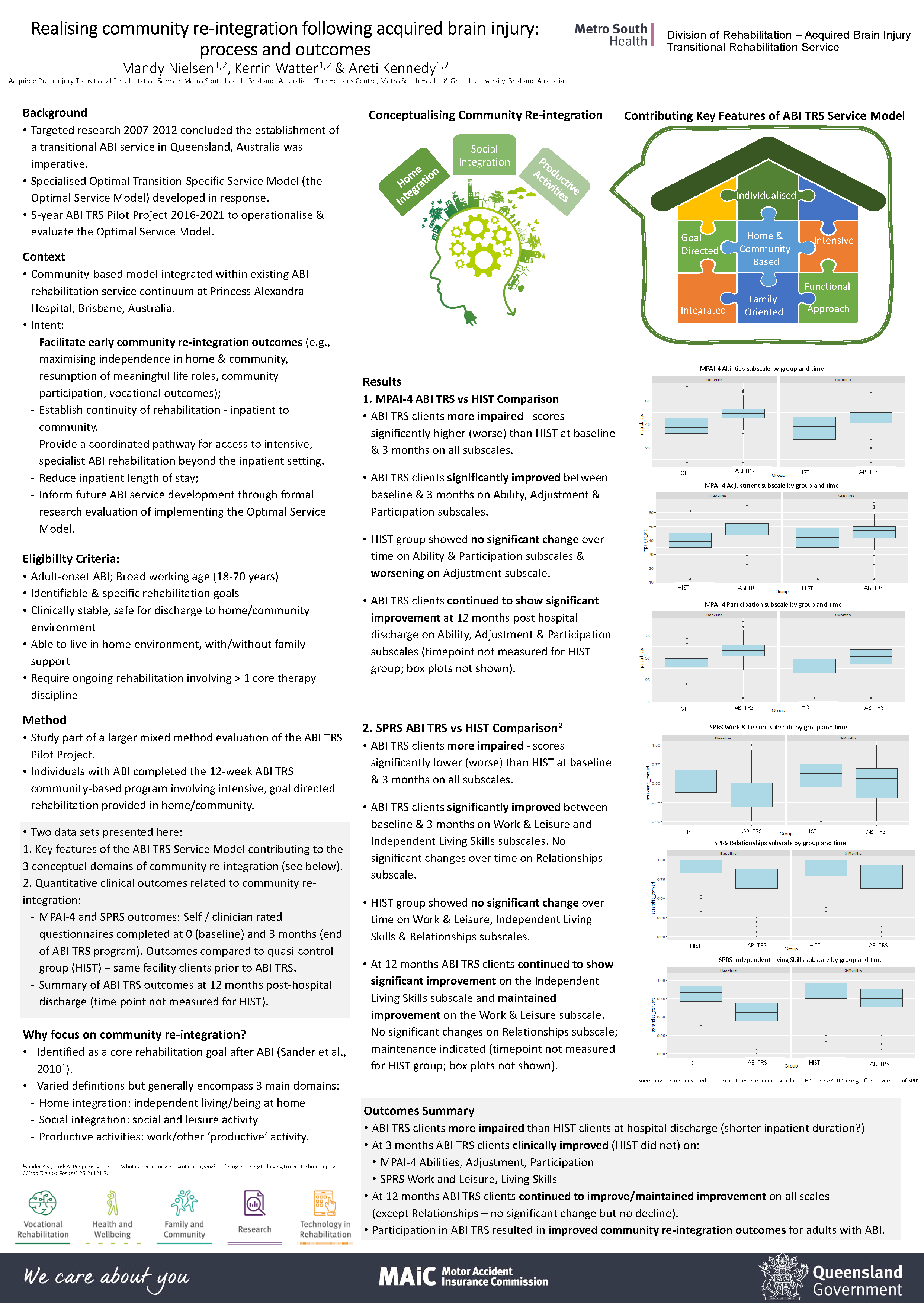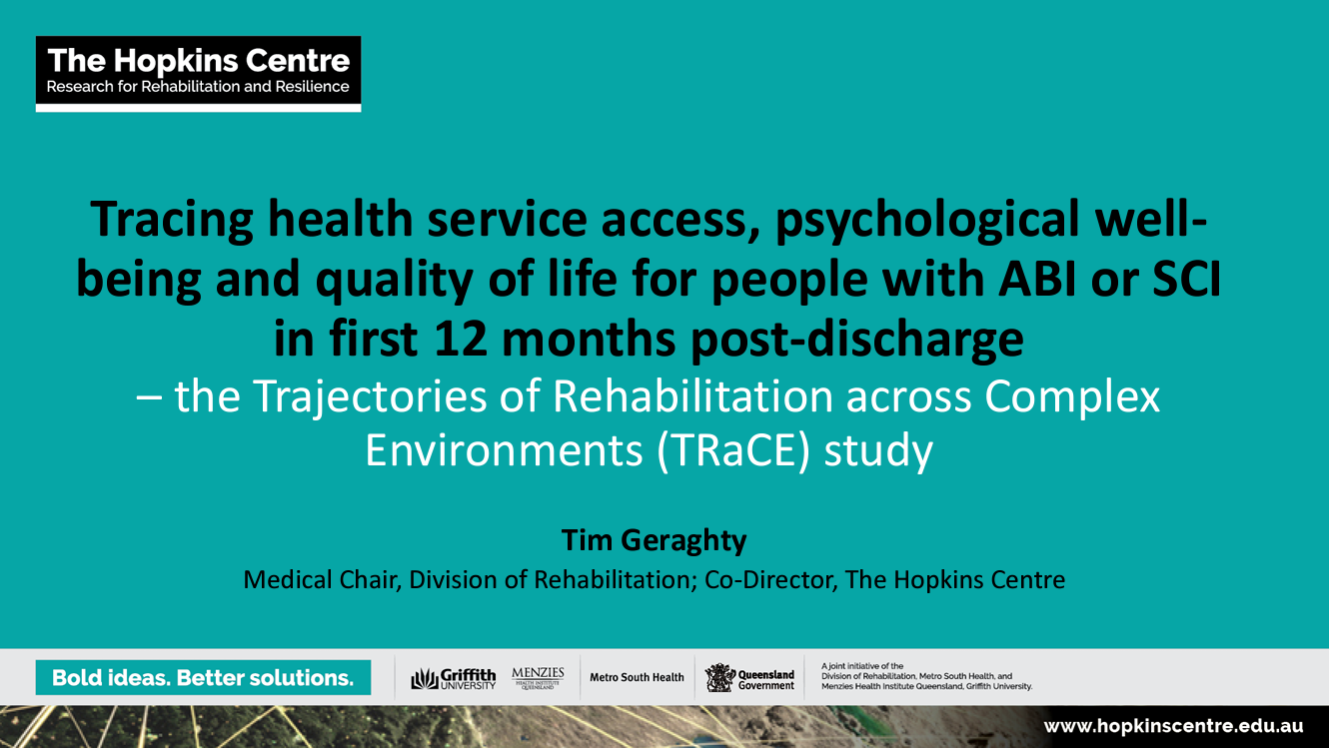THC Research Showcased at Princess Alexandra Hospital's Health Symposium 2023
A number of The Hopkins Centre researchers presented their projects at the recent Princess Alexandra Hospital (PAH) Health Symposium, held from Tuesday 22 to Friday 25 August, 2023. This years' Symposium was a hybrid event held both in-person at the Russell Strong Auditorium at the Princess Alexandra Hospital and via an online platform.
The theme of the 2023 Symposium was Medicine and Wellness: Promoting whole of person well-being.
As the flagship educational event for the PAH – one of Australia’s leading hospitals – and Metro South Health (MSH), the symposium delivered a content-rich program across 17 sessions, featuring:
- Expert clinicians and researchers presenting leading advances in speciality areas
- ‘Hot topic’ panel discussions, and
- The popular debate
- Aboriginal and Torres Strait Islander health,
- Ageing, Community-centred healthcare,
- Consumer partnerships,
- Digital health technologies,
- Interprofessional education,
- Mental health,
- Rehabilitation,
- Vulnerable communities, and more.
The Hopkins Centre researchers were invited to participate, presenting posters and insights from flagships HabITec and TRaCE, as well as other novel projects.
The session recordings are available here.
Disability-focused session
On the afternoon of Thursday 24th August, Dr Nicholas Aitcheson hosted a 90-minute disability-focused session. The theme of the session was the predisposing and perpetuating factors in the disability experience, broken down into biological, psychological and social influences. There were four guest speakers, three professionals speaking from a clinical perspective, as well as a lived-experience expert who shared stories of his personal journey through incomplete cervical spinal cord injury.
First, Prof Mark Hutchinson, a researcher in neuro-immune interaction from Adelaide spoke about the interaction of immune glial cells and nerve synapses in the transmission and amplification of pain. Prof. Hutchinson has been researching in this area for approx. 20 years and the take-home message from his talk was that the more he looks and the more he knows, the more complex the pain experience seems. It seems progressively less likely to him that a simple “biomarker” for pain will be found.
Following Prof. Hutchinson, Dr Hayley Williams spoke about her work into the resilience of Indigenous families who have paediatric members with burns. Dr Williams presented a model of resilience looking at factors that contribute good outcomes after burns. These factors included base values and family support as well as patients’ treatment while in hospital. The most important patient care facets identified were good communication and emotional support, something to bear in mind with all our therapeutic interactions.
Third, Prof Tim Geraghty, Medical Chair of the Division of Rehabilitation and Co-Director of The Hopkins Centre, talked about outcomes from the TRaCE study, looking at the journeys that people with spinal cord injury and acquired brain injury go through in the 12 months following discharge from hospital, with his presentation Tracing Health Service Access, Psychological Wellbeing and Quality of Life for People with ABI or SCI in first 12 Months Post-Discharge (below). Some brief findings from this were that people with more financial resources had a smoother experience after discharge and that people who live in metropolitan areas have better access to rehabilitation support than people in rural and remote areas. Transport availability was one of the main barriers to accessing valued services and activities.
Finally Mr Billy Hedderman, ex Irish Special Forces Officer, spoke of his cervical spinal cord injury following a surfing accident. He talked about how his training with the Special Forces influenced his approach to rehabilitation, having previously built tolerance of challenging situations, having a practical, growth mindset and focusing on what was possible to do in the moment, working towards his personal goals.
![]() The session recordings are available here.
The session recordings are available here.
Click the image below to view Professor Geraghty's presentation.
Self Advocacy after Acquired Brain Injury
Jessie Mitchell and Annerley Bates co-presented a poster from the Self Advocacy after Acquired Brain Injury Project.

Acquired Brain Injury Translational Rehabilitation Service
Areti Kennedy and her colleagues from Acquired Brain Injury Translational Rehabilitation Service (ABI TRS) presented the poster "Health system benefits of an integrated specialist Acquired brain injury transitional rehabilitation service”, highlighting the teams' work investigating the benefits of ABI TRS for the health system, providing value for money by improving patient health, wellbeing and productivity outcomes; reducing inpatient length of stay; increasing access to specialist ABI rehabilitation in Queensland; and releasing capacity across the rehabilitation continuum.

ABI TRS Research and Development Officer, Dr Mandy Nielsen presented the poster “Realising community re-integration following acquired brain injury: process and outcomes”, which itemised the significant improvements in community re-integration outcomes realised by ABI TRS clients up to 12 months following their rehabilitation program with the service.
ABI TRS clients demonstrated significant, sustained improvements in three community re-integration areas: home integration, social integration and productive activity, which are all core goal domains for rehabilitation following an acquired brain injury.

The ABI TRS team also won an award for 'best poster' for their "clinical research early career researcher the health system benefits poster"
![]() That poster can be viewed here.
That poster can be viewed here.
The HabITec Lab
Soo Oh presented a poster on the pilot of The HabITec Lab at the Princess Alexandra Hospital, which aimed to explore whether a technology-focussed service could help to address the challenges associated with the uptake of technology by people with disabilities across the rehabilitation continuum.
![]() Click here to view the poster.
Click here to view the poster.
Tags: Health Symposium, Research Showcase, Conference
Related Articles
- Bold Ideas Better Solutions Symposium, 2023
- THC Conference Presentations January - June, 2024
- THC Conference and Workshop Presentations July - December, 2024


